MPH-VPH Alumni Excel in Diverse Career Paths
The unique expertise gained through the MPH-VPH program at Ohio State has enabled alumni to take on critical positions responding to COVID-19, including becoming faculty members educating the next generation of public health professionals, taking leadership roles at prominent public health agencies, and working as helping ensure the safety of food, medical products and more.
What is your current role?
Associated Faculty at The Ohio State University College of Veterinary Medicine
In your current position, are you playing a role in the COVID-19 response effort?
The small contribution I've been able to make to the current response effort has been related to the OSU CVM's response to continue providing education to our clinical 4th-year students. This has been done by overhauling our rotation curriculum to an online format to teach and support our future professionals in the face of this pandemic. The preventive medicine team has ardently and resiliently worked to teach and support our clinical students in this difficult time. I hope that lessons learned in my teaching of Veterinary Disaster Preparedness and Response and in Infection Control Protocols will help our future professionals meet the challenges we are facing in this pandemic and in their future practice.
What is the main lesson or takeaway that you have obtained during your participation in the response to the COVID-19 pandemic?
Response efforts vary greatly from providing food, testing individuals, saving lives, sharing helpful information, donating items, checking in our neighbors, encouraging others, being a good role model in following recommendations, and much more. While we might not get the opportunity or have the ability to respond in all of these ways, whatever we can do, even if it's to provide encouragement or a smile can make all the difference in this collective effort. This collective effort provides a resiliency to any hazard we may face.
How did the VPH program prepare you for this position?
The VPH program afforded me many opportunities to explore many facets of veterinary public health, especially the field of emergency preparedness and response. Through the program, I have had the great fortune to work with multiple government agencies throughout the state, complete a practicum in D.C. with the National Disaster Medical System, develop and implement statewide training exercises, meet professionals I never would have come across without the VPH program, and much more. This program opened doors I didn't even know existed which allowed me to see how I could build upon my DVM background and expand my impact in One Health.
What is your current role?
Consumer Safety Officer at the US Food and Drug Administration.
How did the VPH program prepare you for this position?
While my current position with the FDA does not directly support COVID-19 response efforts, currently and for the last ten months I have been working in regulatory affairs/food safety. Participating in the VPH program has prepared me for a majority of the aspects of my job, from having a base of knowledge in food safety and food regulations to participating in hands-on experiences such as environmental monitoring, which I perform as a normal part of my job now. A majority of my daily job tasks are rooted in subject areas that were discussed at various points throughout my time in the VPH program and I am now getting the opportunity to improve my knowledge in these areas.
COVID-19 Frontline Roles
Many graduates of the Master of Public Health - Veterinary Public Health program (MPH-VPH) at The Ohio State University worked tirelessly on the frontlines of the COVID-19 pandemic, using their training in epidemiology, disease surveillance and infection control to help track, contain and mitigate the spread of the novel coronavirus.
What is your current role?
Infectious Disease Epidemiologist/Central Region Public Health Coordinator for Franklin County Public Health.
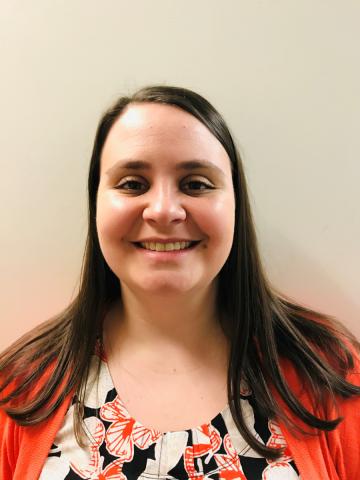
In your current position, are you playing a role in the COVID-19 response effort?
Yes, directly. Being part of the infectious disease team at a local health department has meant that I have been involved in the COVID-19 response since the beginning. My role has evolved throughout the incident, but my current position is the Contact Investigation Lead. This means my group is responsible for contacting individuals that were identified as a close contact to someone diagnosed with COVID-19 to provide them with quarantine information, instruct them to monitor for symptoms, and answer any questions they may have.
What is the main lesson or takeaway that you have obtained during your participation in the response to the COVID-19 pandemic?
Flexibility and adaptability are far more critical in responding to the COVID-19 pandemic than I ever thought imaginable. There are plans in place, agencies conduct exercises to practice their response to a scenario, and processes are designed to work in everyday activities and in an emergency, but all of these things will be changed. An incident of this magnitude requires people and agencies to be flexible and adapt to the ever-changing situation. Plans or processes may not work as expected, guidance changes, and other unexpected challenges will arise and those who can accept and adapt to those changes, while continuing to move forward will be better off.
How did the VPH program prepare you for this position?
The VPH program provided a foundation that has allowed me to succeed in my career and in this pandemic response. The epidemiology courses I took in the VPH program have been invaluable. Of course, we did not learn directly about COVID-19, but having a good understanding about diseases and viruses has allowed me to translate that knowledge to COVID-19. Everything from incubation and exposure periods, virus mutation, isolation and quarantine and so many other topics are all part of my daily routine.
In addition to the epidemiological aspect, having a strong understanding of emergency preparedness and biosafety practices has also been beneficial. The courses in the VPH program provided an understanding of the incident command system, infection control practices, as well as personal protective equipment use. Throughout the pandemic these have been topics that have been interwoven into the response and having some general knowledge on these has been very valuable.
Overall, the VPH program provided exposure to a wide range of subjects and concepts, which for someone working in a local health department has been extremely advantageous. I didn't just memorize facts in the VPH program, but rather learned concepts that can be translated into various circumstances. I can easily and confidently say that the information I learned in the VPH program has prepared me for many real-world situations, including the COVID-19 pandemic.
Any other comments or pearls of wisdom you would like to share with current students and alumni?
The hard and uncomfortable situations are where people grow the most. Take advantage of those times to learn new skills, gain additional knowledge and grow in your profession. This is applicable in so many other settings, besides just in the pandemic, or even in your career. At the end of the day, you'll have grown so much more from challenging yourself than taking the easy road.
What is your current role?
Laboratory Scientist II for the Ohio Department of Health – Public Health Laboratory.
In your current position, are you playing a role in the COVID-19 response effort?
Yes, directly. Due to the pandemic my work duties have been adjusted to include accessioning, processing and testing SARS-CoV-2 samples.
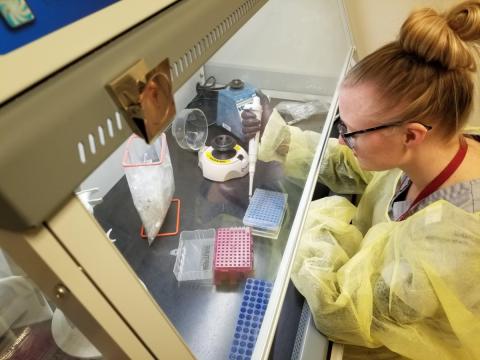
What is the main lesson or takeaway that you have obtained during your participation in the response to the COVID-19 pandemic?
The main lessons I have taken from response to the SARS-CoV-2 pandemic are to be flexible, organized and keep communication open with all of my co-workers. Our main goal will continue to be: to provide accurate test results to quickly identify infected individuals, isolate them and trace/quarantine any contacts to minimize the spread of the virus to others.
How did the VPH program prepare you for this position?
The VPH program gave me the opportunity to experience a laboratory setting before I began my career. My practicum experience at The Ohio Department of Agriculture in the Animal Disease Diagnostic Laboratory allowed me to see how laboratory data can drive public health decisions and ultimately protect public health interests in Ohio. Now, as a public health scientist the response to the SARS-CoV-2 pandemic is yet again providing data to ultimately protect public health in Ohio.
What is your current role?
Epidemiologist for the State of Ohio Department of Developmental Disabilities
In your current position, are you playing a role in the COVID-19 response effort?
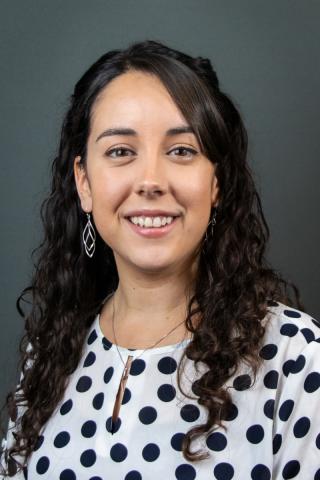
Yes, my team is in charge of analyzing data related to COVID and individuals with intellectual/developmental disabilities (case tracking, number of hospitalizations, provider information, PPE data, Developmental Center data, claims data, etc.). We create a weekly report for the Director and leadership. We also provide support to all of the DODD Divisions with any data request that is COVID related.
What is the main lesson or takeaway that you have obtained during your participation in the response to the COVID-19 pandemic?
The main lesson I've learned is the importance of collaboration. We have worked with so many divisions both within DODD and other sister agencies (ODH, ODJFS, ODM, etc.). Collaboration has been key to get the needed data to those in a position to make important and timely decisions during this pandemic.
How did the VPH program prepare you for this position?
Since the VPH program is in both the College of Veterinary Medicine and the College of Public Health, we were in a unique position to easily collaborate with several colleges at Ohio State. Being able to interact with and work with people from many different areas of expertise is incredibly important once you graduate and start working as a public health professional.
What is your current role?
Emergency Preparedness Supervisor at Franklin County Public Health
In your current position, are you playing a role in the COVID-19 response effort?
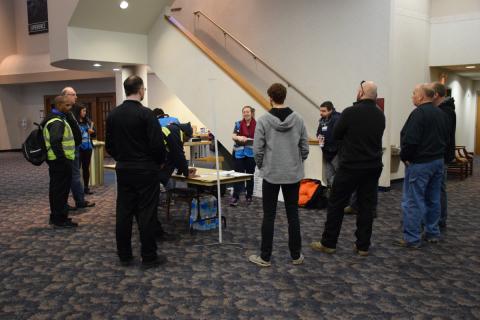
My role at Franklin County Public Health is Emergency Preparedness Supervisor and during the COVID-19 response is Planning Section Chief. This position is a part of the Incident Command System (ICS) Structure that allows for agencies to respond to emergency events. Within this role I support response efforts through planning of daily objectives, setting operational periods, and oversight of the Planning Section staff within the ICS Structure, which also includes the coordination of the Franklin County and Columbus Medical Reserve Corps Unit Volunteers. The Planning Section is imperative to the work of the health department as it enables processes, meetings, applicable required ICS forms to be documented for current operations as well as future development of plans and procedures. Documentation is key component to all responses and allows for the creation of an After-Action Report / Improvement Plan to be completed as the response is demobilized. All these functions of the Planning Section support Franklin County Public Health to respond to COVID-19 Pandemic!
What is the main lesson or takeaway that you have obtained during your participation in the response to the COVID-19 pandemic?
Collaboration, pre-established partnerships and planning are key to a successful response! Pre-established partners within the community, as well as established plans and protocols, enabled a swift response of the community. Although this pandemic is unprecedented, and plans need to be modified to support this pandemic, the structure of response and partner engagement allowed for resources, communication, and collaboration to support the COVID-19 Response.
How did the VPH program prepare you for this position?
The VPH program prepared me for this position by laying the foundation in understanding the nuances of Emergency Preparedness. Theoretical topics such as Incident Command System (ICS), Outbreak Response, fundamental Biostatistics, as well as in the field practicum experience. Mentorship from VPH program professors encouraged additional growth and brought to the table a real-world perspective of knowledge needed for prospective employers. All these areas allowed for me to have the foundation necessary to start my career in Public Health Emergency Preparedness.
Any other comments or pearls of wisdom you would like to share with current students and alumni?
- Attend Brown Bag Sessions!!
- The VPH Professors have a wealth of knowledge and experiences that can support you for your future career goals
- Classmates within your Cohort will be lifelong friends! Help each other succeed in the VPH program but also once you start your careers!
What is your current role?
Infection Prevention Practitioner at OhioHealth.
In your current position, are you playing a role in the COVID-19 response effort?
It is my responsibility to provide input and expertise while creating/implementing infection prevention measures within the hospital. Some of these examples include, guidance on proper donning/doffing, providing proper PPE, correct utilization of PPE, ensuring environment is effectively disinfected. I also provide education about the epidemiology of the pathogen to guide decision-making. In general, my role is to act as a consultant to prevent infectious patients (or associates) from infecting other people.
What is the main lesson or takeaway that you have obtained during your participation in the response to the COVID-19 pandemic?
I have realized the importance of working as a team, capitalizing off team members expertise, and following the incident command structure. I have also realized the importance of preventing panic to ensure the safety of everyone; staying calm, being transparent, and providing accurate and timely information creates the safest and most efficient environment for everyone involved.
How did the VPH program prepare you for this position?
I use a lot of information about disease pathways, transmission cycles, and epidemiology to guide my decision making. Also, knowledge about the structure of health departments and national/international health agencies helps to provide me with reliable information and community resources to lean on. This information also provides me with the understanding of the general structure of health departments; how they obtain case information, contact tracing, their roles at the local and state levels, and most importantly how a hospital IPP can partner with them. The most relevant information I obtained through my MPH-VPH is a thorough understanding of disease transmission because my role heavily revolves around breaking the cycle, and preventing infections by implementing the most effective prevention measures.
Any other comments or pearls of wisdom you would like to share with current students and alumni?
This has been a very trying time for everyone, but I feel the most hope when I see multi-disciplinary teams coming together for one common goal. It is so important to lean on others during these challenging times, you cannot be expected to know or understand everything through a pandemic so by staying humble and asking the experts for help it will almost always result in the best possible outcome.
What is your current role?
Health Services Policy Specialist at the Ohio Department of Health
In your current position, are you playing a role in the COVID-19 response effort?
Yes, I am in the Bureau of Infectious Diseases, Healthcare Associated Infections Program. We are responsible for COVID-19 surveillance, prevention, control, and outbreak response at the state level. This means receiving reports from Ohio's 88 local health departments as well as hospitals, nursing homes, and laboratories into the Ohio Disease Reporting System. Each day we go through reported cases and classify them, assist local health departments with their investigations, and provide them guidance in outbreak control and response based on CDC recommendations. We compile and analyze the data for daily reports to the ODH COVID-19 dashboard. Each week, I am responsible for ensuring the weekly long-term care facility case reports have been submitted by the local health departments, as well as extract, format, and submit the data for the website update. Before COVID was detected in Ohio, I also created a survey for hospitals to complete assessing their preparedness for COVID-19 cases. With COVID-19 largely affecting long-term care facilities, I work with the department's nurses to conduct infection control assessment calls with facilities with 1 or more cases to provide guidance on controlling the spread of COVID in the facility. I am also creating an Access database to manage our COVID-19 outbreaks and response activities and regularly respond to requests for data about facilities to inform response activities.
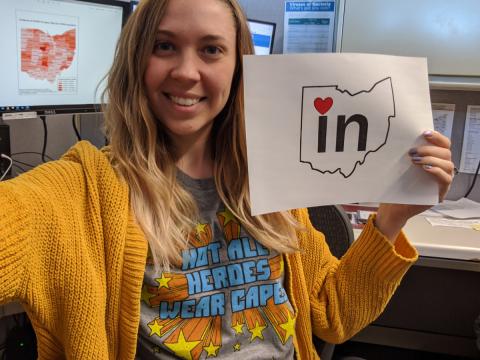
What is the main lesson or takeaway that you have obtained during your participation in the response to the COVID-19 pandemic?
The importance of a solid foundation in the public health system that is maintained regardless of whether a pandemic is ongoing. The response has unfolded and developed so quickly that many of our processes proved to not be effective early on and we had to scramble to create and adapt processes to handle the high volume and speed of COVID-19. We are now receiving a lot of money through various grants with very little time to come up with plans for using the money.
It's also become very clear that the balance of data quality and speed of reporting is hard to strike, but especially in the time of COVID. The governor, the media, and public are asking for data at warp speed and expect it to be clean and up to date as soon as it's shared. This is not how public health data works, as it needs investigated and verified before being reported to the public. For example, due to the governor's mandate of long-term care facility reporting on the website, we have to have weekly updates which often need to be corrected after publishing.
Lastly, it has become very clear that local health departments are in need of more funds and staffing. Some only have 1 or 2 nurses or epidemiologists doing all the contact tracing and reporting. A robust public health system needs to be built to prevent overwhelming the system.
How did the VPH program prepare you for this position?
My culminating project gave me the experience in independently managing large, interrelated datasets and analyzing them. Much of my work has required fast turnaround and problem solving that I may not have been prepared for without my culminating project. The program did a great job at describing the structure of government agencies and the chain of command which becomes very important when reporting infectious diseases and communicating with other levels of government. Interestingly, the knowledge I gained about infection prevention and control on food animal farms is very relevant and has many parallels with my work in infection prevention and control in healthcare facilities.
Any other comments or pearls of wisdom you would like to share with current students and alumni?
Now is a great time to be in public health! Not only is it very needed, but COVID-19 has started a whole new chapter in public health, where the general population now have an understanding and appreciation for public health, and infection control is more on the forefront than ever.
What is your current role?
Infection Prevention Practitioner at OhioHealth.
In your current position, are you playing a role in the COVID-19 response effort?
Yes, directly. OhioHealth has been working since late February/early March to ensure that our patients, visitors, and associates are receiving the best possible care as we all work on the front lines to prevent the spread of COVID-19. My direct role has included setting up an alternate site of care at the Columbus Convention Center in case our central Ohio hospitals became too overwhelmed, monitoring COVID-19 numbers, rapidly changing processes and procedures as acuity, supply levels, and CDC guidelines changed, manning a 24/7 call center to answer questions for associates and physicians, and so much more.
What is the main lesson or takeaway that you have obtained during your participation in the response to the COVID-19 pandemic?
The main lesson that I obtained during the COVID-19 pandemic is to always be ready for change. During this pandemic, the minute we put out new guidelines per CDC/WHO recommendations, they would change. Things were rapidly changing, and we constantly had to learn to be on our toes at a moment’s notice.
How did the VPH program prepare you for this position?
The VPH program prepared me for this position by not only giving me the knowledge about viruses, pandemics, public health, etc., but it gave me the tools to stay informed, to learn what information was pertinent and what wasn't. The VPH program gave me the skillset to be able to work in an environment where I have to be flexible with what I am doing. It also taught me the professionalism to remain calm and to handle situations rationally versus over or under reacting. I am forever grateful for the VPH program!
Any other comments or pearls of wisdom you would like to share with current students and alumni?
Get involved in everything that the VPH program offers. Do ALL of the extra things. For example, during the program I got to volunteer with the COTS emergency response day/simulation. All of the extra events, classes, and volunteer experiences you can fit into your schedule truly impact your knowledge and experience of public health in action. By truly spending the time to understand the material in my courses and by utilizing the extra experiences I was offered, I felt like I started my career with a foot forward. Take advantage of every moment you have in the program.
COVID-19 Occupational Safety Roles
Several alumni of The Ohio State University's Masters of Public Health - Veterinary Public Health program took on important occupational safety positions during the COVID-19 pandemic, developing and implementing protocols to protect essential workers from exposure to the coronavirus in settings like meat processing facilities, veterinary practices and animal shelters.
What is your current role?
Veterinary Medical Officer at the United States Department of Agriculture – Animal and Plant Health Inspection Services – Animal Care
In your current position, are you playing a role in the COVID-19 response effort?
Yes, indirectly. As the chair of our Safety & Health Committee, I have been the lead author of a standard operating procedure for inspectors to follow while resuming inspections. This ensures the health and safety of our employees while we return to work during the reopening phases.
What is the main lesson or takeaway that you have obtained during your participation in the response to the COVID-19 pandemic?
This exercise has solidified the concept of HACCP as a way to identify risks during a process and implement measures to avoid or mitigate them. My normal job duties require me to focus mostly on animal health and welfare, but I value this opportunity to serve my fellow employees and their health in this tumultuous time.
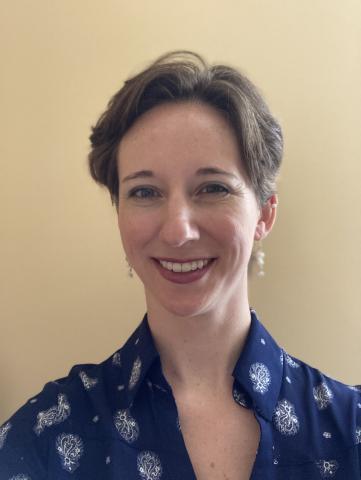
How did the VPH program prepare you for this position?
The VPH program introduced me to the HACCP system, and encouraged critical thinking and problem solving to promote healthy behaviors. It also introduced me to the organizations which have been the primary sources of information. The basics in epidemiology helped me to read the reports with a critical eye and understand the impact and scope of the data findings.
Any other comments or pearls of wisdom you would like to share with current students and alumni?
Try to be open to new opportunities, because you never know where they’ll lead you!
What is your current role?
First Year Graduate Veterinary Education Public Health Instructor for the United States Army.
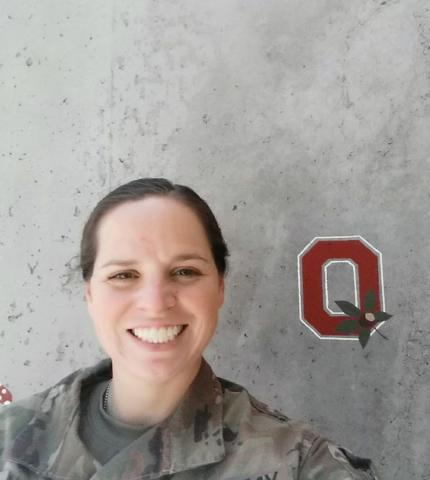
In your current position, are you playing a role in the COVID-19 response effort?
Yes, indirectly. As a senior member of my unit's staff, I have been working with our clinics on reopening plans, proper precautions, messaging and providing training to human providers.
What is the main lesson or takeaway that you have obtained during your participation in the response to the COVID-19 pandemic?
Messaging is the key to a successful response.
How did the VPH program prepare you for this position?
Understanding the interaction between human and animals and how to work with human providers was the big thing I used from my VPH education.
What is your current role?
Animal Research Safety Specialist for the University of California – Los Angeles.
In your current position, are you playing a role in the COVID-19 response effort?
Yes, indirectly. I am assisting COVID-19 response by writing guidance documents for researchers that work with animals and the husbandry/ veterinary team on campus in vivariums. I make decisions in what PPE is required for these groups and assist them in many other ways. Additionally, I am assisting the logistics branch of our EOC which is responsible for PPE procurement and distribution.
What is the main lesson or takeaway that you have obtained during your participation in the response to the COVID-19 pandemic?
I have learned that during a pandemic it is important to be extra patient with people. Everyone has different levels of stress tolerance and a pandemic is definitely a stress inducer, so being extra kind and supportive is necessary.
How did the VPH program prepare you for this position?
The VPH program has prepared me in many ways. My current job title is brand new to the university and is uncommon even throughout the US. I am essentially creating a program wrapped around animal research for the benefit for health and safety of humans, but animals are also very much taken into account too. The VPH program has cemented the importance of this connection between animals and humans, so I take this knowledge with me when making decisions every day. Even though I was hired for one very specific job I have been put on additional teams and tasks because of my experiences from OSU. I am assisting the EOC because of my emergency preparedness and response trainings and internship with the USDA. I am an asset to the data analytics team for my department and I am on a spill clean-up crew for chemical and biological spills. I am in a career where I have been able to use many skills I have learned from OSU while within the MPH-VPH program. This is one reason why I picked the program; I wanted to be able to take on different career paths and different skills to be valuable to employers.
Any other comments or pearls of wisdom you would like to share with current students and alumni?
Have gone through the MPH-VPH program and obtained my first job after graduating I definitely recommend believing all the professors when they say “You are becoming the expert”. When interviewing you need to be confident in your expertise. The VPH program does set you up to be an expert in many fields so believe in that process. Lastly, take all the extra classes, clubs, trips, etc. you possibly can. Those all lead to networking and experiences that you might think you won’t need, but each one really does.
What is your current role?
Director of the OSU-CVM Antimicrobial Stewardship Program at The Ohio State University
In your current position, are you playing a role in the COVID-19 response effort?
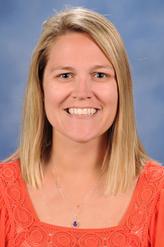
Yes, indirectly. I have a strong interest in Infection Control which plays an important role in reducing the spread of infectious diseases like COVID-19. The Antimicrobial Stewardship Working Group and OSU Veterinary Medical Center (OSU-VMC) Infection Control Group have worked during this pandemic to create educational materials for the Veterinary College Community, such as a Hand Hygiene training video and a Personal Protective Equipment (PPE) training video. I have also participated in discussions regarding the use of PPE in the VMC.
I am also very interested in zoonotic diseases (diseases that can be transmitted from animals to humans) and increasing awareness of these diseases outside of the veterinary community. I was given the opportunity to present on this topic and the impact of COVID-19 in veterinary medicine to 3rd and 4th year College of Medicine students along with a few of my colleagues in the Department of Veterinary Preventive Medicine. My particular focus was highlighting the factors that result in these diseases entering into the human population, which allows us to better understand how we ended up in this current pandemic situation.
What is the main lesson or takeaway that you have obtained during your participation in the response to the COVID-19 pandemic?
I think this pandemic has really driven home the importance of inter-professional cooperation when faced with a previously unrecognized zoonotic disease and the importance of good infection control practices, strict biosecurity practices, and proper hand hygiene.
How did the VPH program prepare you for this position?
I was fortunate enough in the VPH program to be taught by experts in the fields of infectious/zoonotic disease, infection control and biosecurity, epidemiology, and so much more. My VPH course work provided me with an in-depth understanding of the principles of public health - epidemiology, biostatistics, population medicine, biosecurity, infection control.... I could go on and on. Not only did my courses provide me with foundational knowledge, I was given multiple opportunities to apply it. My work in the OSU-CVM Antimicrobial Stewardship Program actually began while I was in the VPH program. The work that was being done to develop this program strongly aligned with my professional interests and I was fortunate to be able to contribute to the launch of the ASP program in our hospital and stay on in a newly created position to continue to grow the program in our College and beyond.
My other experiences in the VPH program have directly benefited me as I engage stakeholders and colleagues within the University and the state of Ohio. In the VPH program, I worked directly with faculty and external government stakeholders on numerous projects analyzing the impacts of zoonotic diseases on public health locally, nationally, and internationally. The professional experiences gained during this time enhanced my knowledge of the science, but equally as important, they improved my ability to network in the public health community and work with individuals in the public and private sector. This has and will continue to benefit me in my career.
Any other comments or pearls of wisdom you would like to share with current students and alumni?
As my mentor, Dr. Armando Hoet, loves to say: people are always watching you. It is important to always put in your maximum effort and maintain your professional composure as you never know what personal connection or project could lead to your next job.
COVID-19 Researchers, Food Safety, and Educational Roles
Graduates of Ohio State's MPH-VPH program have utilized their specialized public health training to make significant contributions to the COVID-19 response, with alumni working as researchers investigating coronavirus transmission and vaccination, advancing food safety protocols to reduce viral spread and developing educational materials to promote proper pandemic health behaviors.
What is your current role?
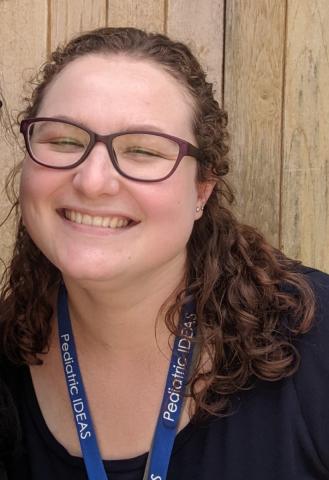
Clinical Research Coordinator at Children's Hospital of Philadelphia
In your current position, are you playing a role in the COVID-19 response effort?
Yes, I am the study coordinator for a COVID-19 research study in hospital employees (both clinical and non-clinical roles) that is validating a new serologic test for SARS-CoV-2 antibodies. We are enrolling 2000 to 3000 employees to complete surveys about their potential exposures, and we are asking them to come in for several blood draws over a year.
What is the main lesson or takeaway that you have obtained during your participation in the response to the COVID-19 pandemic?
Circumstances are rapidly changing, both in the community and at work, and we need to remain flexible and compassionate.
How did the VPH program prepare you for this position?
The VPH program lectures on appropriate PPE and pathogen transmission routes gave me a solid understanding of the potential spread of this virus, and ways that we can mitigate the spread. This knowledge helped me develop a plan for safely carrying out a prospective research study with in-person study visits during a pandemic.
Any other comments or pearls of wisdom you would like to share with current students and alumni?
Be mindful of the fact that other people do not have the same background knowledge about infectious diseases as we do, and the idea of an outbreak can cause fear and anxiety.
What is your current role?
Associate Manager of Quality Assurance at The J.M. Smucker Company
In your current position, are you playing a role in the COVID-19 response effort?
Yes, I support our manufacturing plants that produce human food, coffee and pet food on a daily basis. When COVID-19 hit, we knew we needed to keep producing products that would quickly be consumed off the store shelves but needed to ensure our manufacturing employee safety while continuing their efforts as essential workers. Sanitation chemicals and other supplies, like face masks, started becoming harder to secure, especially when we and the entire nation were using larger quantities. I led a cross functional team to ensure our supplies were good across all sites. In some cases, we had to get creative and figure out new ways of cleaning, use different chemical alternatives and share amongst sites.
What is the main lesson or takeaway that you have obtained during your participation in the response to the COVID-19 pandemic?
We always need to be prepared for the unthinkable. Having safety stock of key items is essential. Working with people with have different perspectives help to come up with the best solutions.
How did the VPH program prepare you for this position?
I understood why the country took drastic measures in slowing the spread because of Biostatistics and Epidemiology courses. Those helped me prepare for how quickly Covid cases spread exponentially and now we see firsthand how large the impact of a pandemic is, across all facets of life.
Any other comments or pearls of wisdom you would like to share with current students and alumni?
You’ll be surprised how random pieces of your coursework will pop into your mind as you navigate through your career. You may question why you’re learning a particular subject but it will come to help you down the road.
What is your current role?
Consumer Safety Officer at the U.S. Food and Drug Administration, Center for Veterinary Medicine
In your current position, are you playing a role in the COVID-19 response effort?
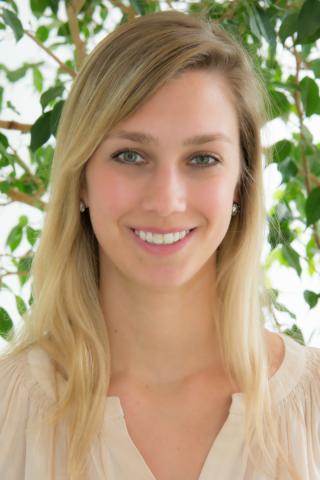
Yes, indirectly. I manage a program for feed mills using certain medications to manufacture livestock feed that are required to license and register with FDA. During COVID-19, FDA suspended routine inspections to protect its employees and stakeholders. While this has presented some challenges, I have successfully been able to collaborate with colleagues and stakeholders to navigate through this unprecedented time to ensure the continued production of safe and effective medicated feed for livestock.
What is the main lesson or takeaway that you have obtained during your participation in the response to the COVID-19 pandemic?
I've really appreciated the continued collaboration between my colleagues and industry during this time. Everyone has been very understanding of and flexible with the current telework environment. I've been impressed with how much my organization, the Center for Veterinary Medicine, has been able to continue doing in a full telework environment to fulfill our mission of promoting and protecting human and animal health.
How did the VPH program prepare you for this position?
The VPH program helped to prepare me for this position in several ways. The program opened my eyes to many careers within the field of public health, particularly those involving One Health, zoonotic and infectious disease, food safety, environmental health, and numerous others that I didn't know existed prior to completing the program. Specifically, the VPH program required completion of a practicum, which I did with FDA's Center for Veterinary Medicine, giving me the opportunity for a full-time position after graduating. The VPH program also brought together individuals from various educational and cultural backgrounds, which prepared me well for working with the diverse and highly intelligent group of colleagues that I work with today. I feel as though the VPH program provided a well-rounded, in-depth, and applicable curriculum that has allowed me to better communicate with FDA's stakeholders, understand and empathize with them and my colleagues, and have a solid understanding of the concept of One Health.
What is your current role?
Science Writer at The Ohio State University College of Nursing
In your current position, are you playing a role in the COVID-19 response effort?
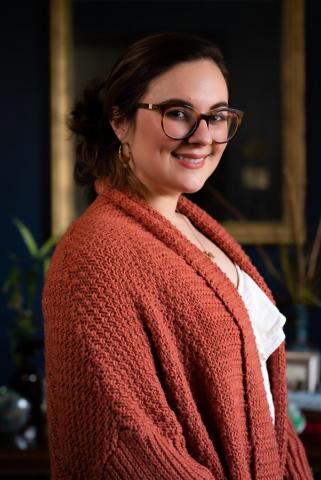
Yes, indirectly. I draft a range of publications for review by scientists, federal research funding institutions, foundation and/or corporate grant reviewers, and/or the media and the public related to nursing science, health and wellness, and/or evidence-based practice, etc., on behalf of Bernadette Melnyk, The Ohio State University Chief Wellness Officer, Vice President for Health Promotion, and Dean and Professor of the College of Nursing (CON). Most recently I performed a reference search to assist the COVID-19 Transition Task Force in developing their return to campus guidelines and recommendations. I drafted a slide deck that was presented during week 8 of the Staying Calm and Well in the Midst of COVID-19 Storm series. Lastly, I reviewed all of the comments provided during the Staying Calm and Well series to assist in developing common worry themes expressed by the participants.
What is the main lesson or takeaway that you have obtained during your participation in the response to the COVID-19 pandemic?
The COVID-19 pandemic has placed a severe amount of anxiety on the general public. Many individuals feel a lack of control and stability. These feelings are resulting in a mental health crisis across the US. Furthermore, this crisis is amplified in BlPOC communities who have been disproportionately affected during the pandemic.
How did the VPH program prepare you for this position?
The VPH program provided me with a solid foundation in zoonotic diseases. I was not surprised by the pandemic or the response as we had thoroughly discussed the likelihood of a zoonotic pandemic and its effects in my zoonotic epidemiology classes. In the same class, we had also discussed SARs and MERs, so I felt familiar with coronaviruses.
My thesis was on burnout and compassion fatigue in lab animal workers. That projected assisted with my ability to perform literary reviews, search through research databases, and understand how our environment impacts our mental health.
Any other comments or pearls of wisdom you would like to share with current students and alumni?
Allow yourself time to grow into the career you imagine for yourself. Continue to seek experiences that will assist in your own journey.
What is your current role?
Postdoctoral Researcher at The Ohio State University College of Veterinary Medicine
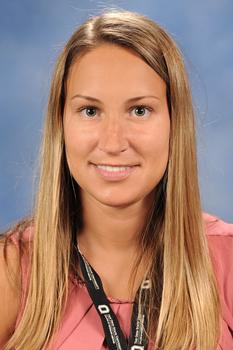
In your current position, are you playing a role in the COVID-19 response effort?
Yes, as part of GOHi, we have been carrying out projects to help understand and control the COVID-19 situation in Ethiopia.
What is the main lesson or takeaway that you have obtained during your participation in the response to the COVID-19 pandemic?
Healthcare systems across the world are ill-prepared to deal with such a pandemic. In Ethiopia, there is an over reliance on the healthcare system. Further, social distancing is more difficult to practice in some cultures than others.
How did the VPH program prepare you for this position?
The VPH program trained me in many aspects of prevention and detection of zoonotic disease outbreaks as well as appropriate methods for surveillance, response, and control. It is a program that prepares professionals to deal with situations such as the current COVID-19 pandemic.
What is your current role?
Agriculture Inspection Administrator at the Ohio Department of Agriculture
In your current position, are you playing a role in the COVID-19 response effort?
Yes, as an Administrator for the Division of Meat Inspection, I have to monitor and ensure that inspectors and supervisors are properly implementing the number of preventative measures for COVID-19. The administration provided reusable masks and face shields, as well as hand sanitizer, disinfectant liquid for surfaces and other items, and is collecting daily information per person about health status, travel, COVID-19 related symptoms and Temperatures. In case if any alerts after this daily questionnaire is completed, I need to determine if the person needs to stay home in quarantine and also report to our HR department. I am calling this indirect because I am not involved in creating the guidelines for employees. Also, I have to ensure the guidelines dictated by the Ohio Governor's office for meat and processing plants are communicated to the plant’s owners and their staff.
What is the main lesson or takeaway that you have obtained during your participation in the response to the COVID-19 pandemic?
People can be very resistant to highly recommended protective measures even when explanations are provided for the reasons of implementation. For some, unless measures are made mandatory, they will not be implemented.
This is important at this time because it leaves a huge gap of potential active transmission of the virus as a possibility, impossible to track, because it relies on people’s own beliefs or perception of constitutional rights, vs prioritizing public health for the benefit of the majority. This of course affects the spread of the disease while there is more factual information Produced by researchers about the virus’ mechanisms of transmission.
How did the VPH program prepare you for this position?
The program includes a great amount of information and training about virus mechanisms, zoonotic diseases, correct use of PPE in a variety of circumstances, among other specifics around transmission of diseases. This understanding is important for me to focus on the preventive measure that I know for sure are effective, have an educated guess on those that potentially may or may not be effective, and add a few measures for my protection and others that even though some think are not effective, I know they are. I think this helps lowers the risk of exposure that I need to take, I can orientate my family members as well and also point at scientific information vs rumors and social media or politics.
Any other comments or pearls of wisdom you would like to share with current students and alumni?
Please focus on your training and how you can be a source of calm and good scientific information to share as you grow and work in your community.
Contact the Veterinary Public Heath Program
Associate Director, Veterinary Public Health Program
Dr. Amanda Berrian
berrian.4@osu.edu
Graduate Education Coordinator
Allison Bevinger, MAEd
bevinger.3@osu.edu